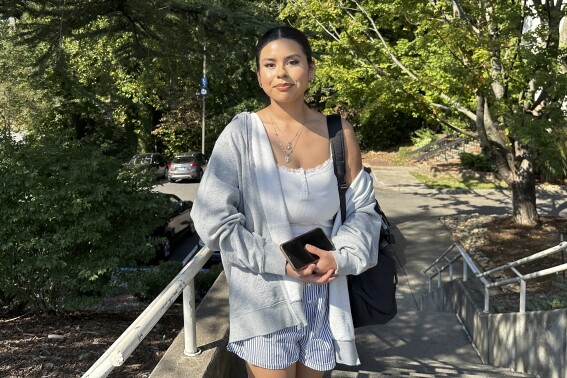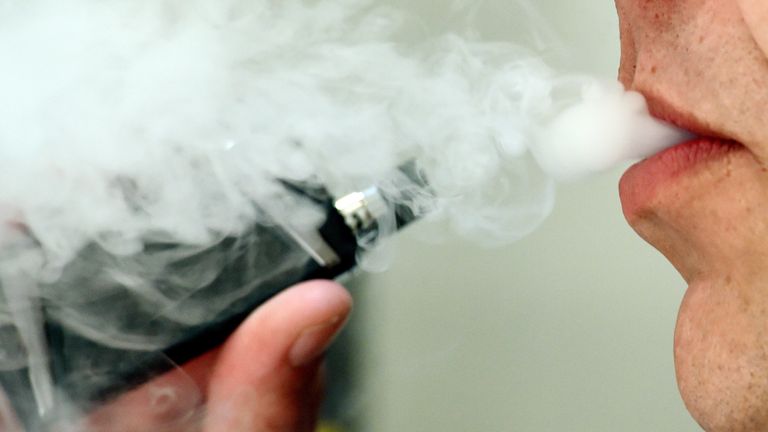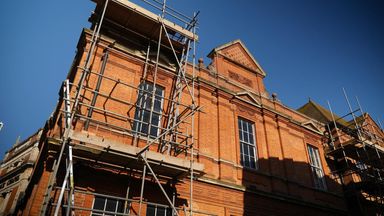WASHINGTON (AP) — The latest in an Associated Press series examining what’s motivating voters in battleground states looks at how state abortion bans that have transpired since 2022 will influence the way women vote in North Carolina.
Two years after the U.S. Supreme Court overturned Roe v. Wade, tensions over abortion have only intensified, setting the presidential election up as a referendum on fundamental rights for tens of millions of women.
Flanked by southern states where abortion is nearly outlawed, North Carolina has a more moderate 12-week ban in place after the Supreme Court overturned nationwide abortion rights. The state has also dealt with a deluge of women who are seeking abortions that they cannot get in states like Florida, Georgia and South Carolina.
Still, Democrats are betting that abortion will be the winning issue that motivates white women voters to cast a ballot for Vice President Kamala Harris, bucking the years of support that former President Donald Trump enjoyed from those voters. If Harris has any chance of winning the state’s 16 electoral votes, she’ll need to draw from the 60% of white women voters who backed Trump in the 2020 election, according to AP VoteCast data.
Here are highlights from AP’s report:
Young women are most motivated to vote over abortion
Young women, like 26-year-old Christy Kishbaugh, are seeing horror stories on social media of women who’ve been turned away from emergency rooms after trying to get care for miscarriages or failing pregnancies. But state abortion bans prevented doctors from helping them.
That sticks with Kishbaugh, a married suburbanite, as she thinks about voting in this election. She’ll cast a ballot for Harris, in part because she’s worried about how she and others would be treated if they ever experience a pregnancy emergency.
“Thinking ahead, if anything were to go wrong,” Kishbaugh nearly whispered, iced coffee in hand. “The idea that myself, my friends, people close to me, that they could potentially die or never have kids or lose a child because they’re not getting access to the health care they need, that really dwells with me.”
The Supreme Court’s ruling that left the states to decide abortion rights has far from settled the issue, with legislatures passing a range of restrictions that face ongoing legal changes. And it has pushed a new crop of North Carolina voters — 10% of them in 2022 — to name abortion as their highest priority, according to AP VoteCast data. In 2020, only 3% of the state’s voters named it a top issue, and most of them backed Trump.
Jenny Gonzalez is one of those voters. The 21-year-old is already signed up to vote in her first election and it was abortion that motivated her.
“It should be access to all women, no matter the situation, because everyone goes through different things and you don’t know why they decide to get the abortion,” Gonzalez, a college student who is studying pharmacy technology, said.
But now, Democrats say, the tide has turned. In this election, they are targeting young women under the age of 35 in particular on the issue, said Morgan Jackson, an adviser for Democratic candidate Josh Stein’s campaign. And they’re running stark ads, warning that women could lose access if they vote for Republicans, including candidate for governor Mark Robinson, who has promised to outlaw “abortion in North Carolina for any reason.”
“Republicans have set off their hand grenade in their own hands,” Jackson said. “They thought you were with them all the way. It’s way more complicated than that.”
What to know about the 2024 Election
- Today’s news: Follow live updates from the campaign trail from the AP.
- Ground Game: Sign up for AP’s weekly politics newsletter to get it in your inbox every Monday.
-
AP’s Role: The Associated Press is the most trusted source of information on election night, with a history of accuracy dating to 1848. Learn more.
Not so fast, Republicans say
The issue isn’t as pressing for voters in North Carolina, which does not have the draconian bans that some other southern states have implemented, said Republican state senator Vickie Sawyer.
Sawyer considers what she hears from her own young adult daughters. Abortion comes up, she said, but not as much as worries about the cost of housing or everyday items.
“It’s right in the wheelhouse of something that could affect them,” Sawyer said. But she said “they know their rights are protected” because the state’s 12-week abortion ban allows for some exceptions in the second trimester.
Instead, Republicans think the inflated prices of everyday goods, housing and gas is a more pressing issue in the minds of voters.
Leyla Herrera, a 20-year-old Wake Forest University student, agrees. She’s considering a vote for Trump in her first presidential election. The biology student, who doesn’t ascribe to a party, says inflated prices have been tough on her middle class family, based in a Charlotte suburb.
“Donald Trump, when he was in office, there was better prices, especially for gas. Food is a really big thing, all of that has really gone up,” she said.
Older women care about the abortion issue less
Older women — even Democrats — see abortion as more of a peripheral issue compared to younger women.
To Donna Klein, an 80-year-old retiree, women’s rights are “important,” but the environment is her top concern, a worry only punctuated by the hurricane destruction.
“It’s very important we try to figure out what’s going on, what we can do it about it,” Klein said. “As an older person, as I think about my grandkids. What kind of earth are they going to inherit?”
Abortion may resonate deepest with younger women, but they’re also a historically unreliable voting bloc, said Linda L. Petrou, a longtime Forsyth County Republican and district chair.
“There might be more women — younger women — coming out and voting for Harris because of that,” Petrou acknowledged. But, she added, “the percentage of young people vote is relatively small.”
Nationally, 4 in 10 women under 30 years old say abortion is their top issue, according to a poll released this month by KFF, a health policy research organization.
Laura Browne, a 45-year-old retired Air Force staff sergeant and mother of two daughters, believes Democrats are using stories about denied medical care to scare young women. Browne works for an anti-abortion center that counsels pregnant women. Some days, she stands outside of a Planned Parenthood clinic, hoping to talk women out of having an abortion.
“I believe they’re being told there’s only one option, and that they’re too young to have children,” said Browne, who lives in Fayetteville, North Carolina. “And I would say that that is wrong.”
___ Superville reported from Fayetteville, North Carolina. AP National Writer Allen G. Breed in Fayetteville and Associated Press writer Josh Boak in Washington contributed to this report.
What to know about the 2024 Election
- Today’s news: Follow live updates from the campaign trail from the AP.
- Ground Game: Sign up for AP’s weekly politics newsletter to get it in your inbox every Monday.
-
AP’s Role: The Associated Press is the most trusted source of information on election night, with a history of accuracy dating to 1848. Learn more.
Disclaimer: The copyright of this article belongs to the original author. Reposting this article is solely for the purpose of information dissemination and does not constitute any investment advice. If there is any infringement, please contact us immediately. We will make corrections or deletions as necessary. Thank you.



